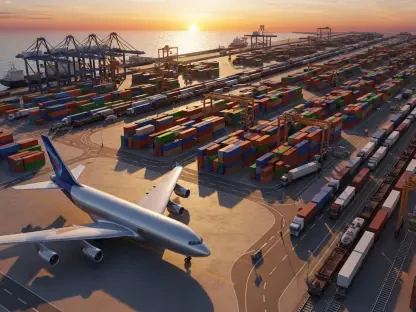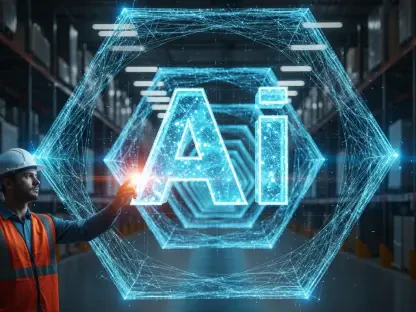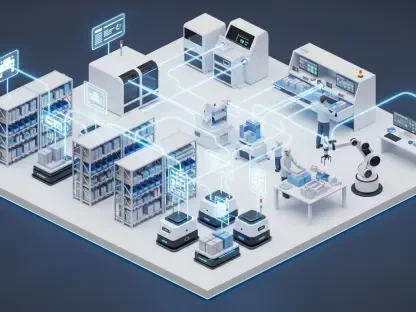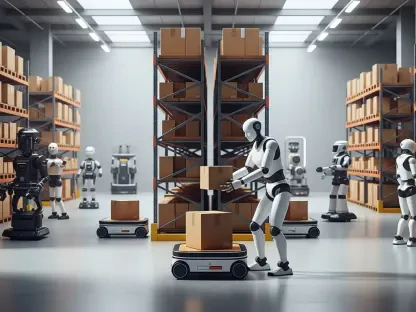Artificial intelligence (AI) is ushering in a new era of efficiency and innovation across various industries, and the vehicle shipping and logistics sector is no exception. By leveraging the power of AI, companies are optimizing their operations, reducing costs, and delivering enhanced customer experiences. This transformation is driven by a range of AI applications, from route optimization to autonomous transport vehicles, each contributing to a more streamlined and sustainable logistics ecosystem. This article delves into the significant advancements and future trends in AI-driven vehicle shipping and logistics, highlighting how these technologies are shaping the industry’s future.
Route Optimization
One of the most impactful applications of AI in vehicle shipping is route optimization. AI systems analyze real-time data on traffic conditions, weather, road closures, and fuel prices to determine the most efficient routes. This results in faster delivery times, reduced fuel consumption, cost savings, and a lowered environmental impact. Carriers using AI-enabled logistics tools can significantly minimize delays and excess mileage. By continuously processing vast amounts of data, AI allows for dynamic route adjustments. For instance, if a sudden road closure occurs, the AI system can instantly reroute the vehicle to avoid delays. This adaptability ensures that shipments arrive on time, enhancing overall efficiency and customer satisfaction.
Furthermore, the environmental benefits of AI-driven route optimization cannot be overstated. As companies face increasing pressure to adopt eco-friendly practices, optimizing routes through AI becomes a crucial tool in achieving sustainability goals. Reduced fuel consumption and fewer emissions contribute to a lowered carbon footprint, aligning with regulatory standards and customer expectations for greener logistics solutions. This dual advantage of cost savings and sustainability positions AI as a pivotal player in the future of vehicle shipping and logistics.
Intelligent Load Matching
AI-powered load-matching platforms are revolutionizing how shipments are paired with carriers. These systems evaluate vehicle capacity, shipment sizes, and destinations to match shipments with the most suitable carriers. Automating this process reduces downtime, improves fleet utilization, and boosts profitability. By ensuring that trucks are filled efficiently, AI-driven load matching minimizes empty miles and maximizes resource utilization. This not only enhances operational efficiency but also reduces the environmental impact of vehicle shipping.
Companies can achieve higher profitability while contributing to sustainability goals through intelligent load matching. Additionally, these platforms streamline logistics operations by reducing the time and effort required to manually match shipments with carriers. This automation allows logistics companies to focus on other critical aspects of their operations, further enhancing overall efficiency. The reduction in manual workload also means fewer human errors, leading to more accurate and reliable logistics processes.
Predictive Maintenance
Unexpected vehicle breakdowns can disrupt logistics operations and lead to significant costs. AI addresses this challenge through predictive maintenance technology. Sensors on transport trucks gather data on engine health, tire pressure, and brake performance. AI algorithms analyze this data to predict potential issues, allowing for preemptive maintenance. Predictive maintenance enhances safety by identifying and addressing potential problems before they lead to breakdowns. This proactive approach reduces repair costs and ensures smoother operations, minimizing disruptions in the logistics chain. Companies can maintain high levels of reliability and customer satisfaction by incorporating predictive maintenance into their operations.
Furthermore, predictive maintenance extends the lifespan of transport vehicles by ensuring they are well-maintained. This reduces the need for frequent replacements, leading to cost savings and a more sustainable approach to fleet management. The continuous monitoring and analysis provided by AI-driven systems enable logistics companies to keep their fleets in optimal condition, leading to increased operational efficiency and longevity of their assets.
Customer Support Automation
AI is enhancing the customer experience in vehicle shipping through customer support automation. Chatbots and virtual assistants provide instant support, answering customer queries, tracking shipments, and assisting with bookings. These tools offer 24/7 updates, streamlining the shipping process and boosting customer satisfaction. Automated customer support reduces the need for human intervention, allowing logistics companies to handle a higher volume of inquiries efficiently. This leads to faster response times and improved customer experiences.
Moreover, AI-driven customer support tools can handle repetitive tasks, freeing up human agents to focus on more complex issues. This improves overall service quality and ensures that customers receive timely and accurate information. The combination of instant support and accurate data provided by AI-driven systems builds trust and enhances transparency in the vehicle shipping process, contributing to higher levels of customer satisfaction and loyalty.
Autonomous Transport Vehicles
The integration of AI with autonomous driving technology is transforming long-haul vehicle shipping. Self-driving trucks equipped with AI systems can operate without human intervention, reducing driver fatigue and enhancing road safety. This technology increases operational efficiency and has the potential to lower shipping costs. Autonomous transport vehicles can operate continuously without the need for rest breaks, leading to faster delivery times. This increased efficiency makes car transport more accessible and cost-effective, and over time, the widespread adoption of autonomous vehicles could revolutionize the logistics industry.
Additionally, autonomous transport vehicles contribute to safety by reducing the risk of human error. AI systems can make real-time decisions based on data from sensors and cameras, ensuring safe and efficient operation. This technology holds promise for a future where road accidents are significantly reduced, creating a safer and more reliable transportation network. The advancement of AI-driven autonomous transport vehicles is poised to reshape the logistics landscape, bringing new levels of efficiency and safety to vehicle shipping.
Advanced Supply Chain Visibility
AI enables real-time tracking of vehicles during transit, providing detailed insights into location, estimated arrival times, and potential delays. This advanced supply chain visibility improves planning and coordination, building trust between companies and clients. Real-time tracking allows logistics companies to provide accurate updates to customers, enhancing transparency and reliability. Clients can monitor their shipments and plan accordingly, reducing uncertainty and improving overall satisfaction.
Moreover, advanced supply chain visibility helps companies identify and address potential issues before they escalate. By analyzing real-time data, logistics managers can make informed decisions to optimize operations and ensure timely deliveries. This proactive approach enhances efficiency and customer trust. The transparency offered by AI-driven supply chain visibility is crucial in today’s fast-paced logistics environment, providing a competitive edge to companies that embrace this technology.
Enhanced Data Analytics for Strategic Decisions
AI systems process vast amounts of historical shipping data to identify patterns and trends. Companies can leverage these insights to optimize fleet management, forecast demand, and adjust pricing strategies. Understanding seasonal demand fluctuations, for example, allows companies to allocate resources effectively, ensuring better service during peak periods. Utilizing AI-driven data analytics enables logistics companies to make strategic decisions that enhance operational efficiency and profitability.
Additionally, the insights gained from AI analytics can help companies anticipate market trends and adjust their offerings accordingly. This strategic advantage allows logistics providers to stay ahead of the competition and meet evolving customer demands. The ability to analyze and act on data-driven insights is transforming the way logistics companies operate, leading to more informed and effective decision-making processes.
Conclusion
Artificial intelligence (AI) is spearheading a transformative era of efficiency and innovation across numerous industries, including the vehicle shipping and logistics sector. By harnessing the capabilities of AI, companies are streamlining their operations, lowering expenses, and providing superior customer experiences. The transformation is being fueled by a diverse array of AI applications, such as route optimization and autonomous transport vehicles, each playing a pivotal role in creating a more efficient and eco-friendly logistics ecosystem. This article explores the substantial advancements and emerging trends in AI-enhanced vehicle shipping and logistics, underscoring how these cutting-edge technologies are revolutionizing the industry’s landscape. Looking forward, AI’s role is expected to expand, further driving progress and setting new standards for operational excellence, cost savings, and environmental sustainability in the logistics industry, ensuring a future where efficiency meets innovation at every turn.









